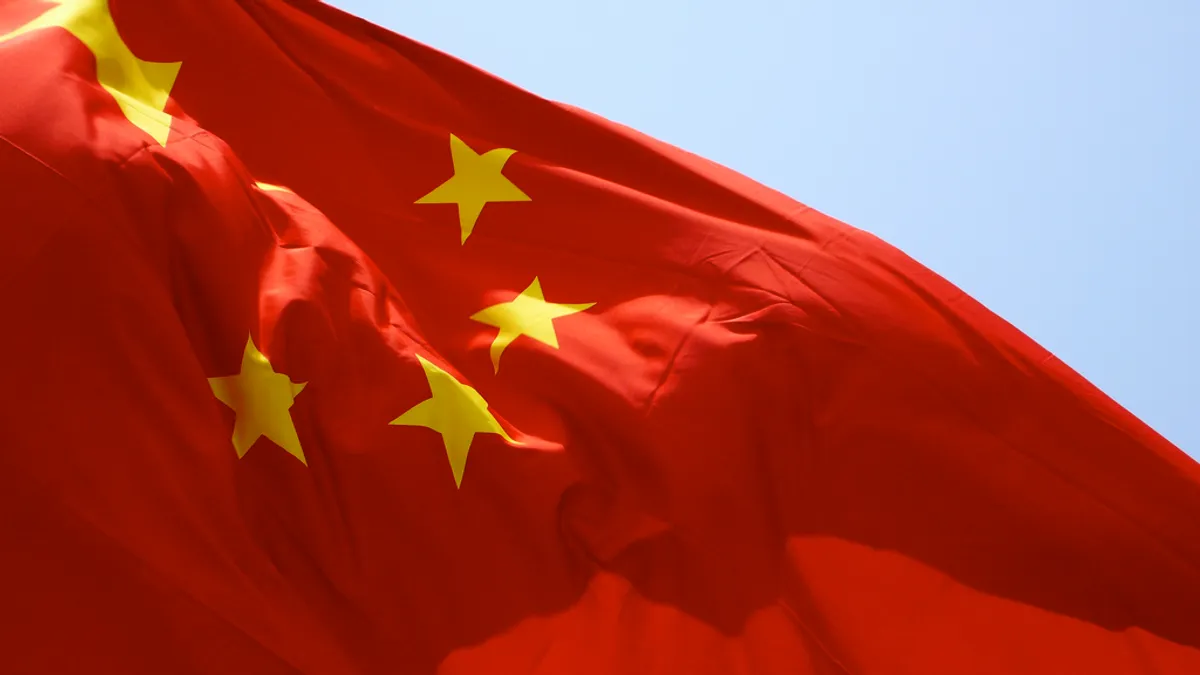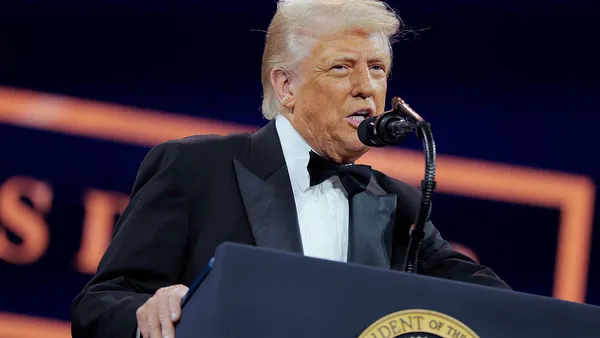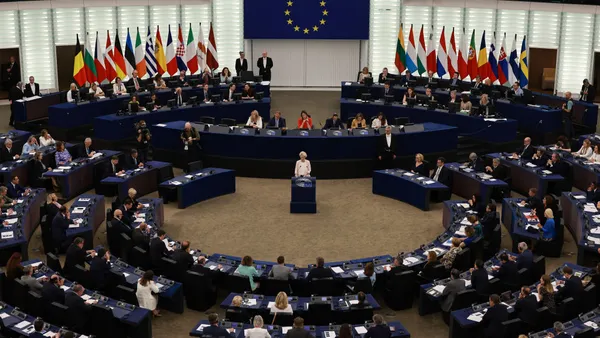Dive Brief:
- China will lower tariffs on imports of more than 850 products from all trading partners including the U.S. as of Jan. 1, according to a release from the country's Ministry of Finance Monday.
- Chinese trade authorities will lower tariffs on imported frozen pork, frozen avocados, non-frozen orange juice, wood and paper products and some components for high-tech electronics.
- Tariffs will be zeroed out on some pharmaceutical products related to asthma and diabetes "to reduce medication costs and promote the production of new medicines," the Customs Tariff Commission of the State Council said.
Dive Insight:
The move from China confirms a progressive deal President Trump has been celebrating since Dec. 13, when he announced the U.S. tariffs set to go into effect Dec. 15 would not do so as part of the first phase of a trade deal that could signal the end of tit-for-tat tariffs.
The U.S. Trade Representative Robert Lighthizer said China has pledged to increase imports from the U.S. by more than $200 billion over the next two years — $40 billion annually in agricultural products — according to multiple media reports. This move by China lifts tariffs on some of the most valuable imports to China and likely instills some relief in U.S.-based agricultural supply chains for whom China is traditionally a major customer. China has yet to confirm Lighthizer's figures.
Apart from thawing trade relations, the announcement also recognizes the impacts of import tariffs on the lives of Chinese citizens.
The tariff cuts represent "efforts to moderately increase the import of daily consumer goods that are relatively scarce in the country or have foreign characteristics to better meet people's needs," read the Chinese statement.
A protracted outbreak of African swine fever in China and neighboring countries has stressed the country's supply of its most popular meat product. The price of pork has risen 100%, according to McKinsey.
Beyond increasing access to important imports, cutting tariffs may also be motivated by international trade rules, since according to The Wall Street Journal, the country needs to avoid the appearance of manipulating import markets with an aim toward controlling the market or pricing.














